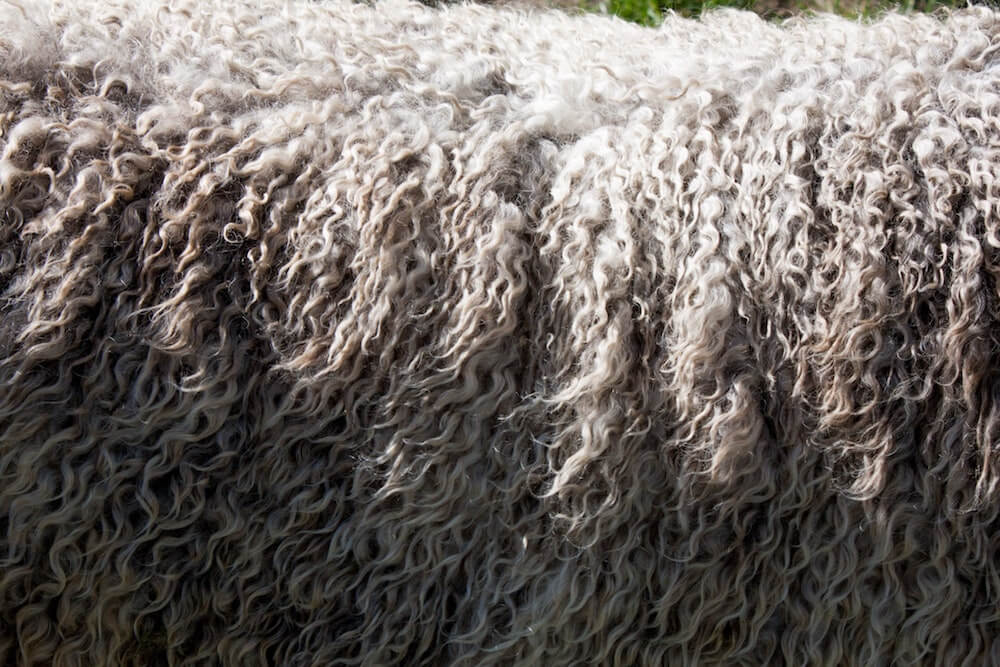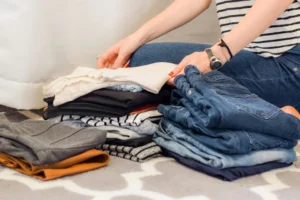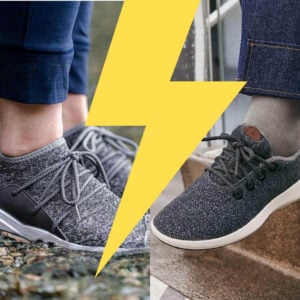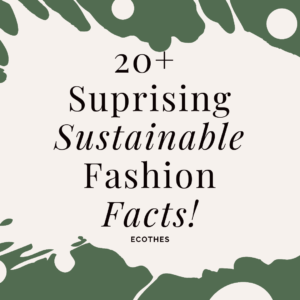In recent years, you may have noticed the resurgence of Merino Wool being used by many brands, including sustainable shoe brands like Allbirds, Baabuk, Giesswein, and clothing brand Smartwool.
In this article, we’ll explain what Merino wool is, why it is a popular material choice for footwear and clothes, and whether merino wool is ethical.
So let’s jump in and take an in-depth look at Merino Wool.
What is Merino Wool?
Merino wool is a soft fiber grown by Merino Sheep. Merino wool is naturally crimped and ultra-fine, 20% thinner than the diameter of a strand of human hair. Merino Sheep produce merino Wool to insulate and protect themselves in colder climates.

Merino Sheep originated in Spain and lived in semiarid climates with cooler evenings and moderate rainfall.
Today, Merino Sheep are bred and reared worldwide, with Australia being the biggest producer of Merino Wool globally.
Merino sheep produce wool around their bodies and can produce up to 18 kg of wool per year per sheep, depending on the Merino breed.
The Wool is then sheared from sheep and spun into yarn.
What are the benefits of Merino Wool?
Natural & Renewable
Merino Wool is a completely renewable natural fiber produced by sheep. It is not a synthetic material and is biodegradable. These properties make Merino Wool a popular choice for many sustainable brands opting for synthetic alternatives.
Naturally Water Repellant
Merino Wool is a naturally water-repellent material. The material is not entirely waterproof, but the strong fiber can hold up to 30% of its weight in water without losing its insulating properties.
Breathable & Moisture Wicking
Merino Wool is naturally breathable; the fiber wicks moisture away from the skin, keeping you dry. By wicking moisture, merino wool reduces sweat, making Merino Wool a natural odor-reducing material, perfect for sportswear and socks.
Insulating & Temperature Regulating
Thanks to the crimped nature of Merino Wool fibers, the material is naturally insulating as the crimps trap air, allowing your body to warm up the trapped air between threads, which keeps you warm. In addition, when it’s warm, the material allows air to escape from your body, keeping your temperature regulated.
Is Merino Wool Itchy?
No, Merino Wool is not itchy thanks to the long, thin, and soft fibers produced by Merino Sheep. Wool garments only start to itch if low quality short thick fibers are used which can be scratchy on skin.

Is Merino Wool Ethical?
Traditionally Merino Sheep have been bred with many wrinkles, which increases surface area for a greater wool yield. However, these wrinkles can trap sweat and moisture, causing sheep to overheat and die during hot summers. In addition, these wrinkles can trap sweat and urine, causing flies to lay eggs in these wrinkles, resulting in maggots that can eat the sheep and cause serious infections; this is known as “flystrike.”
To prevent flystrike of their flocks, farmers use a process known as ‘Mulesing,’ where the wrinkles are removed by cutting chunks of skin away from lambs. Unfortunately, this painful process is conducted without painkillers, and the sheep are still often subject to infections or recurrent flystrike even after Mulesing.
Many farmers conduct Mulesing unregulated, inhumanely, and unethically, making some forms of Merino Wool unethical. However, there are ways to prevent flystrike disease with humane methods which don’t involve mulesed sheep, and many brands are now choosing to buy Mulesing-free Wool.
What is Mulesing-Free Wool?
Mulesing Free Wool ensures that the lambs and sheep have not been Mulesed.
Many brands and farmers are now taking a stand against Mulesing of lambs and supporting regulated Mulesing Free methods of Merino Wool farming. In 2018, New Zealand officially banned the Mulesing of sheep.
Many organizations and certifications recommend best practices to protect sheep and maintain animal welfare. These organizations include ZQ Merino Wool and Responsible Wool Standard.
Is Merino Wool Vegan?
No Merino Wool is not vegan. Although Merino Wool can be sourced ethically and in cruelty-free ways which don’t harm the sheep providing the wool, animals are always involved.
If you’re looking for vegan materials take a look at materials such as vegan leather, organic cotton, and Tencel.
Merino Wool Uses?
Merino Wool is a versatile fiber as we’ve discussed and has gained in popularity thanks to being renewable and durable.
Common uses of Merino Wool include clothing such as sweaters. Footwear, including shoes, running shoes, sneakers, and slippers, and filling for bedding including organic comforters and pillows.
Conclusion: Is Merino Wool Ethical?
Overall, if Merino Sheep were Mulesed, the wool would be considered unethical and inhumane for the animals. However, many farmers produce ethical wool by ensuring their flocks are museling-free and reared with strict animal welfare standards.
When shopping for Merino Wool products and wool garments, check to see if the wool has been sourced from mulesed sheep or not. To ensure happy sheep and mulesing-free wool, look for certifications such as ZQ certified or RWS certified wool. Another way to shop responsible Merino Wool is to look for recycled Merino Wool.
If you enjoyed this article, and want to find other sustainable materials, check out our guides on Jute and Cupro.



